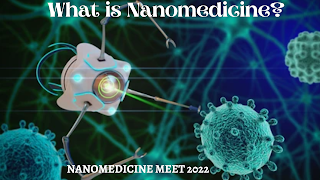What is Nano medicine?
Nanomedicine is that
the medical application of engineering science. Nanomedicine ranges from the medical
applications of nanomaterials and biological devices, to nanoelectronic
biosensors, and even doable future applications of molecular engineering science
like biological machines. Current issues for nanomedicine involve understanding
the problems associated with toxicity and environmental impact of nanoscale
materials (materials whose structure is on the dimensions of nanometers, i.e.
billionths of a meter).
Functionalities may be
additional to nanomaterials by interfacing them with biological molecules or
structures. the scale of nanomaterials is comparable thereto of most biological
molecules and structures; thus, nanomaterials may be helpful for each in vivo
and in vitro medicine analysis and applications. Thus far, the mixing of
nanomaterials with biology has light-emitting diode to the event of diagnostic
devices, distinction agents, analytical tools, physiatrics applications, and
drug delivery vehicles.
Nano medicine seeks to
deliver a valuable set of analysis tools and clinically helpful devices within
the close to future. The National engineering science Initiative expects new
industrial applications within the pharmaceutical trade that will embrace
advanced drug delivery systems, new therapies, and in vivo imaging. Nano
medicine analysis is receiving funding from the North American country National
Institutes of Health Common Fund program, supporting four Nano medicine
development centers.
Nanomedicine sales
reached $16 billion in 2015, with a minimum of $3.8 billion in engineering
science R&D being endowed once a year. world funding for rising engineering
science redoubled by forty fifth annually in recent years, with product sales
prodigious $1 trillion in 2013. because the nanomedicine trade continues to
grow, it's expected to possess a big impact on the economy.


.png)
Comments
Post a Comment